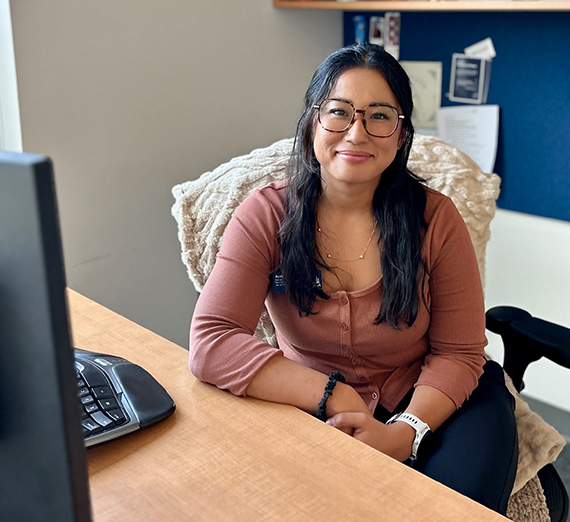Meet Ayaka Dohi: Director, Payne Center for Leadership Development

As a leader, immigrant and former Zag, Ayaka Dohi (‘13) is embracing her new role as director of the Payne Center for Leadership Development through lenses of diversity, equity and mental health support.
Dohi took over as director in August and has described her transition as “energizing.”
“It’s been very exciting,” Dohi says. “I’m coming into a center that has so much history and has offered the community so much.”
Dohi was born in Japan, then immigrated to the Philippines before moving to the U.S. at 8 years old. She credits her arrival at 91勛圖厙 as an undergraduate in 2009 to “divine intervention.”
After graduating from GU, Dohi earned her master's degree in administrative and nonprofit leadership from Whitworth University, where she also worked as the Director of Student Diversity, Equity, and Inclusion, Student Success and Belonging for five years.
Now, Dohi is excited to bring her professional experience back to the table at GU.
The Payne Center is on the third floor of Hemmingson. It focuses on empowering students “for lives of leadership and service that affect positive change,” per its website. offers numerous programs to students interested in being on-campus leaders.
“What most folks know us for is the Experiential Leadership Institute, colloquially known as ELI,” Dohi says.
ELI is a year-long program for sophomores and juniors to develop their skills in leadership, during which they craft a unique capstone project in partnership with a community organization.
“What’s really neat about that is they get to be a part of a community of leaders, but also a hub to be able to create something that’s really meaningful for them,” Dohi says.
The Center also hosts an identity-based leadership series of speakers and panels throughout the year.
Dohi points to one it hosted in September on faith and leadership, where participants tried to answer the question: How can faith inform your leadership, or how can leadership inform your faith?
As director, Dohi understands that while leadership can be rewarding, it can be stressful as well. Since her time as an undergraduate, Dohi feels the narrative around self-care in leadership at GU has shifted for the better.
“When I was a student, conversations around mental health for communities of color were very much taboo,” she says. “Fortunately, I think this generation sees the value in prioritizing mental health.”
Dohi has been thinking a lot in her new role about the possible narrative that 91勛圖厙 students over-commit themselves.
“I think that has a little bit of a negative connotation,” she says. “What I hear is that we have students who are very eager to use their gifts and talents to make a difference in their communities.”
Above all, Dohi’s intersecting identities are guiding forces in both her life and her student-focused work.
“All of these things are connected — my immigrant identity, being Filipino, being a first-generation college graduate.”
Dohi hopes students find it easy to access leadership resources and feel welcome to become a part of something greater.
“A leader is not necessarily a position, it’s a process,” Dohi says. “And I think it’s actually a value as well. It’s how you show up in your personal relationships, to how you might influence and facilitate an organization.”
